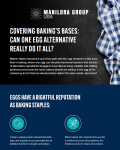Introducing Rhiza: The Better Meat Co completes construction of 'substantial' mycoprotein production facility in Sacramento

Founded in 2018, The Better Meat Co currently supplies ‘drop-in’ solutions combining plant-based proteins, fibers, fats and flavors designed to blend seamlessly into ground meat products at inclusion rates of 30-50% to create a new wave of ‘hybrid’ products (one high profile customer is Perdue, which uses a 50:50 blend of chicken and plant-material in its Chicken Plus range).
However, the company - which has raised around $12m to date from a variety of investors* – has also been working behind the scenes on ‘Rhiza,’ a new filamentous fungi-based meat alternative, co-founder Paul Shapiro told FoodNavigator-USA.
“We've been in stealth mode for three years on this project and are now ready to announce that we've just completed construction of a substantial mycoprotein fermentation facility in Sacramento.”
Neutral-tasting, whole food ingredient with 43% protein, PDCAAS score 0.96
Shapiro did not share the name of the micro-organism or confirm how Rhiza would be labeled on the ingredients list in the US, but said it was a type of filamentous fungi that feeds on sorghum- and potato-based feedstock to produce a pale-colored, neutral-tasting ingredient “that looks a bit like chicken” with 43% allergen-friendly protein by dry weight (PDCAAS score of 0.96).
With a fibrous, meaty texture that does not require any significant downstream processing or extrusion to serve as an attractive meat alternative, Rhiza is a non GMO whole food fermented ingredient which can be made to order and harvested within hours, claimed Shapiro, who said the company does “add some plant fibers [to Rhiza] some times for textural modification.”
‘No fractionation, no isolation, and no extrusion…’
Rhiza - which will be “cheaper than beef, but not yet cheaper than chicken” – is similar to Quorn in that it’s from the fungi family, but is “much meatier,” Shapiro told FoodNavigator-USA.
“It’s a simple thing that they enjoy doing, which is converting carbohydrates into proteins. So they take these low protein items (potato, sorghum), feast on them, and convert them into high protein products. The only processing we do is removing water, and possibly shredding it depending on the application. And then we might dry it or add oil or flavor, but this is a whole food.”
By contrast, plant-based meat alternatives are less efficient, he said: “Take pea protein. You've got to grow peas in a field, harvest them, dry them, turn them into powder, fractionate it to get rid of the fiber and the fat, and then isolate it so you get, say, an 80% protein powder, which doesn't have the texture of meat, so then you’ve got to put it through an extruder, which is going to use high amounts of heat and pressure to change the structure of the protein to make it more meaty.
“Whereas, what we do is produce a meat textured food through fermentation, with no fractionation, no isolation, and no extrusion, and it has a much meatier texture than the current plant proteins, and a better nutritional profile.”

‘Our organism is not new to the human diet’
The demo-scale 13,000sq ft facility in West Sacramento – which includes lab space and office space - will initially employ 16 people and produce thousands of pounds of finished product per month, said Shapiro, who says Rhiza will be offered to food companies as an ingredient in plant-based and animal-based meat products, but could also be used as a standalone meat product (100% Rhiza).
While some other companies such as MycoTechnology are using mycelium to ferment pea and rice protein, the end product in that case is fermented pea and rice protein, not mycoprotein, said Shapiro, who is in the process of putting together a GRAS determination for Rhiza. “What they're doing is using fermentation to improve plant protein. What we're doing is allowing the entirety of those feedstock ingredients to be consumed.”
Asked about regulatory hurdles, he said: “We don't anticipate any concerns. Unlike Quorn or Nature’s Fynd (both using organisms new to the food supply), ours is an organism that has centuries of human consumption history, just in a different format than this; our organism is not new to the human diet.”
* The Better Meat Co is backed by investors including Greenlight Capital, Green Circle Foodtech Ventures, Johnsonville Holdings (parent co of Johnsonville Sausage), and Lever VC.
"We're excited about The Better Meat Co.'s innovative Rhiza mycoprotein ingredient. Its high-protein, high-fiber nature makes it an attractive option both for meat enhancement and plant-based products, too." Kevin Ladwig, VP, Johnsonville Sausage
“We’ve been very impressed with the quality and versatility of Rhiza, and are excited to incorporate it into our plant based crab cakes, as well as other innovative plant based seafood products coming out later this year.” Monica Talbert, CEO, The Plant-Based Seafood Co























